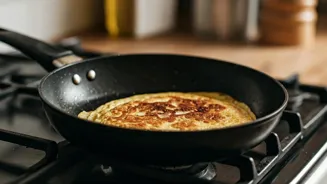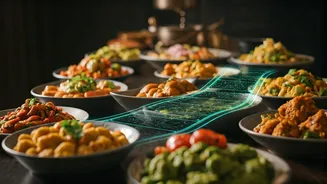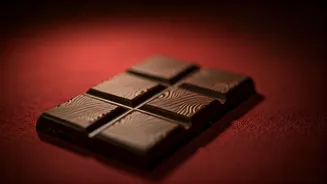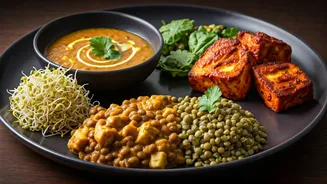Myth 1: Nonstick Always Best
The belief that nonstick cookware is the ultimate kitchen tool is a widespread myth. While nonstick pans excel at preventing food from sticking and are easy
to clean, they have limitations. This type of cookware is great for delicate items like eggs and pancakes, and they work well for anything you do not want to stick to the pan. However, nonstick surfaces aren't always ideal for searing meats or creating flavorful crusts. They often struggle with high-heat cooking techniques due to their heat resistance. Consider a range of cookware types, including stainless steel and cast iron, for optimal results. Stainless steel can handle high heat and develop a delicious sear, whereas cast iron can be used for searing and baking. For more versatility, think about having various cookware. You may find that you have a larger range of cooking options if you have various cookware.
Myth 2: Copper is Superior
Copper cookware has an alluring aesthetic, often associated with professional kitchens and elite chefs. While copper boasts excellent heat conductivity, which allows for even cooking, it's not necessarily the superior choice for every cooking task. Copper cookware may not always be the most practical for home cooks. Copper pans require significant maintenance to prevent tarnishing. They also react with certain foods, which can affect the taste of your cooking. Other materials, such as stainless steel, offer a balance of performance, durability, and ease of care. Stainless steel cookware is easier to maintain, and it will not change the flavour of your dishes. Consider your cooking style and budget to determine if the beauty and functionality of copper align with your needs. Copper can add a certain visual appeal but it does require more maintenance than other types of cookware.
Myth 3: Only Expensive is Good
The idea that high-priced cookware guarantees top-notch cooking results is a common fallacy. While quality cookware can make a difference, the price tag isn't the sole determinant of performance. You don't need to spend a fortune to acquire excellent cookware. Many affordable options deliver impressive cooking results. Focus on features like heat distribution, construction, and material durability. Research different brands and consider reading reviews. Evaluate whether the cookware suits your cooking habits. Often, the best cookware is the one that suits your specific cooking needs. Consider the types of dishes you make regularly, and buy a selection of cookware that addresses those needs. A set of basic pots and pans can be expanded later based on your needs. Avoid the myth that expensive means better. You can find many high-quality options at affordable prices.












